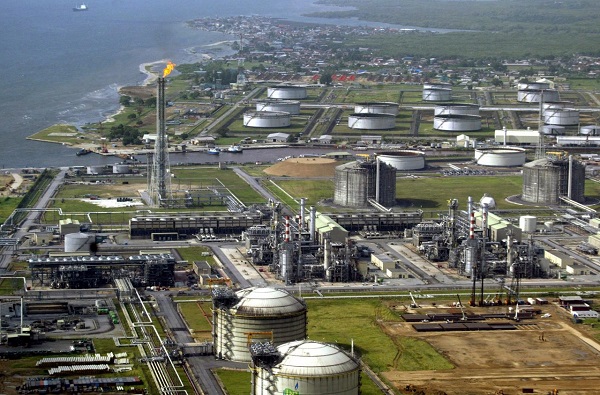This post has already been read 1914 times!
The last few weeks must go down as season of bitter pills that made some Nigerians holding certain ideological belief or agitating for one thing or the other to squint over the unpalatable news before them. In a way, the season was inaugurated by the arrest and extradition of Nnamdi Kanu, the leader of Indigenous People of Biafra (IPOB) which sends cold shivers down the spine of many of his adherents. Before one could say jack, news about the raid of Sunday Igboho’s residence that resulted to a bloody encounter and loss of lives gives you another sour taste. In the same pace and manner, the ruling government extends the bitter pills well beyond the secessionist wailers to resource control agitators of the oil producing communities in the Niger Delta. A region in the South South of the country where crude oil is explored, exploited, exported and earns the nation economic power in foreign currency.
The other day, after what seems like eternity, to be precise, over 13 years, the Senate and House of Representatives finally passed the Petroleum Industry Bill (PIB). From every indication, the President Muhammadu Buhari administration seems to be a negligent teacher in areas where it is supposed to pay more attention. Quite often, the ruling government has consistently let matters of great national importance slide into crisis of public debate as it sluggishly allows the issue(s) to degenerate. The simple fact that Nigeria is a multi-ethnic society means that issues concerning any ethnic group resonate more loudly compared to others. This is especially so in the Niger Delta region that produces the economic live wire on which the nation depends. Therefore, with 30 per cent of profits accruing from oil and gas operations to be set aside for exploration of oil in the frontier basins and a paltry 3 per cent for oil producing communities is best described as humiliating to the people of the Niger Delta.
Of course, the uproar that greeted the decision on the floor of the Senate has hardly died down that the south Governors’ Forum vehemently rejected the 30 per cent proposal share of profit for the exploration of oil and gas in the basins. Also, they rejected the ownership structure of the proposed Nigeria National Petroleum Company Limited, (NNPC). The Forum reiterated its disagreement, ‘that the company be vested in the Federal Ministry of Finance but should be held in trust by Nigeria Sovereign Investment Authority (NSIA)’.
With each passing minute since the PIB was passed, the content of the bill is not only becoming clearer, but has encouraged wild reactions and condemnation of the National Assembly’s poor sharing proposal of oil profits. Aside the criticism of the PIB passage, it has raised tempers among leaders in host communities to a point that elder statesman Chief Edwin Clark began to think of seeking self help when he threatened that; “…if there was no reversal, the Niger Delta people may be forced to take their destiny into their hands…”. It would be tempting to dismiss this as just another empty threat. Knowing that in the recent past, our democracy has been plagued by authoritarian populists.
Nigeria’s democracy under the current dispensation has somehow escaped the limelight that brought it to power. Despite opposition parties and liberals furiously condemning the erosion of democratic norms, they find themselves steamrolled by the ruling government. In that sense, does the need arise to argue that the Buhari administration is likely to listen to words of wisdom with regards to the PIB, as it scoffs the opposition party or anyone with different views, as those who have nothing better to do than to point fingers at government? It is indeed sad that, the President Buhari governments’ disdain for expertise has made government less competent.
The passage of the PIB is purely a political phenomenon. Given the need for the provision of 30 per cent for the frontier exploration of oil in other regions, it is indeed struggling to make sense out of the miserable 3 per cent proposed to the oil producing communities. This is not in any way going down well with the Niger Deltans as it is an attempt to treat them like puppet. Yes, the government may try to argue that the 30% for the frontier exploration is all about promoting economic development in the country. But, is the government consumed with illusion that it cannot see such as advertising inequality in the system. No doubt, there is much that the ruling government gets wrong. The PIB passage is self-serving and dangerous. Nigerians are hurt in nearly every aspects of the current governments policy decisions, is it in area of electricity billing, fuel pump pricing, political appointments, infrastructure development or the equitable sharing of the nation’s wealth among others. Of course, it is no longer news that Nigerians once pined their hopes on promises to transform the country and lift millions out of poverty, today, the masses place their trust on God as hopes from government are fading with each passing day.
A vital principle is at stake. The key to the country’s progress is spiritual, cultural and national self-determination.
Without this, the nation may not be able to withstand internal challenges if any arises. Again, silencing alternative voices does not banish discontent, it bottles it up. Nigeria and indeed the government of the day must allow more space for dissent or risk an explosion in the near future. In truth, the country is on a never-ending roundabout of unfulfilled promises and bureaucratic wheel-spinning of important national issues. Let the PIB be reversed in the interest of peace in the Niger Delta and the country.



